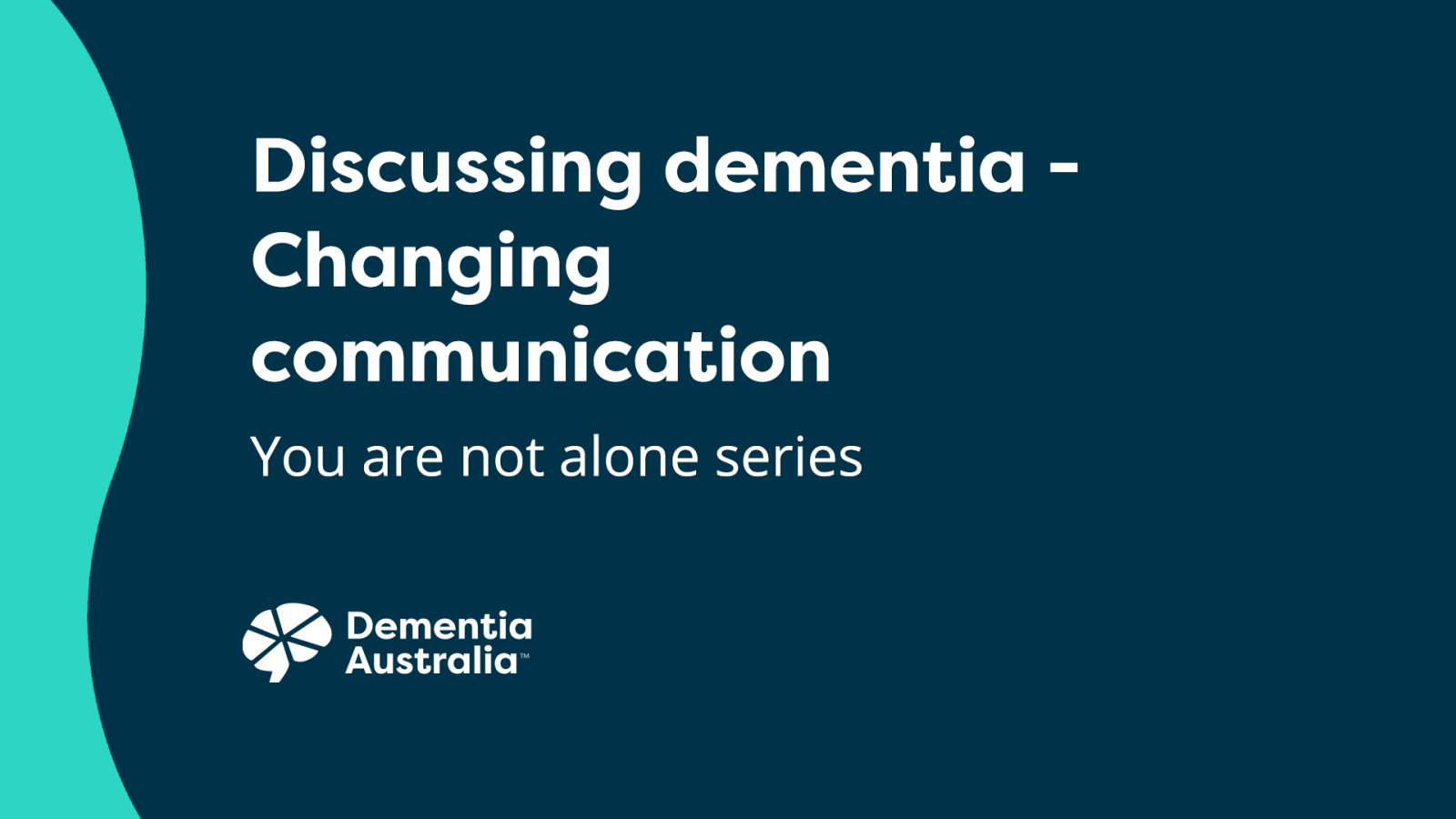Communication
Communication is essential. It helps us maintain our identity and connects us to others.
If you care for someone with younger onset dementia, you may see their language skills and vocabulary diminish over time – but their desire to communicate does not. People still want to understand and be understood. It’s essential to keep the communication going, even when it feels one-sided.
Communicating with someone who has dementia
Someone with younger onset dementia can forget details of recent events, or the event itself. To help them recall events without feeling embarrassed, you can use prompts.
- Talk to the person, not a family member or friend
- Greet the person with a smile and get their attention
- Make eye contact
- Use body language (this is particularly crucial as dementia progresses)
- Speak clearly
- Express one idea at a time
- Provide information in small chunks
- Use simple, direct questions, such as “Wasn’t it lovely when we went to the park yesterday?”
- Offer a small number of choices
- Remove distractions such as noise and bright lights
- Be patient and allow the person time to find the right answer
- Don’t assume the person’s level of understanding
- Don’t take the person literally
- Use humour.
The following help sheet explains some of the changes in communication that occur as a result of dementia and suggests ways that families and carers can help. It also includes some personal tips on communication written by a person with dementia.
Adapting communication styles for people with dementia
Watch the following video: ‘Changing communication’ to gain inspiration from other carers or read the video transcript.

